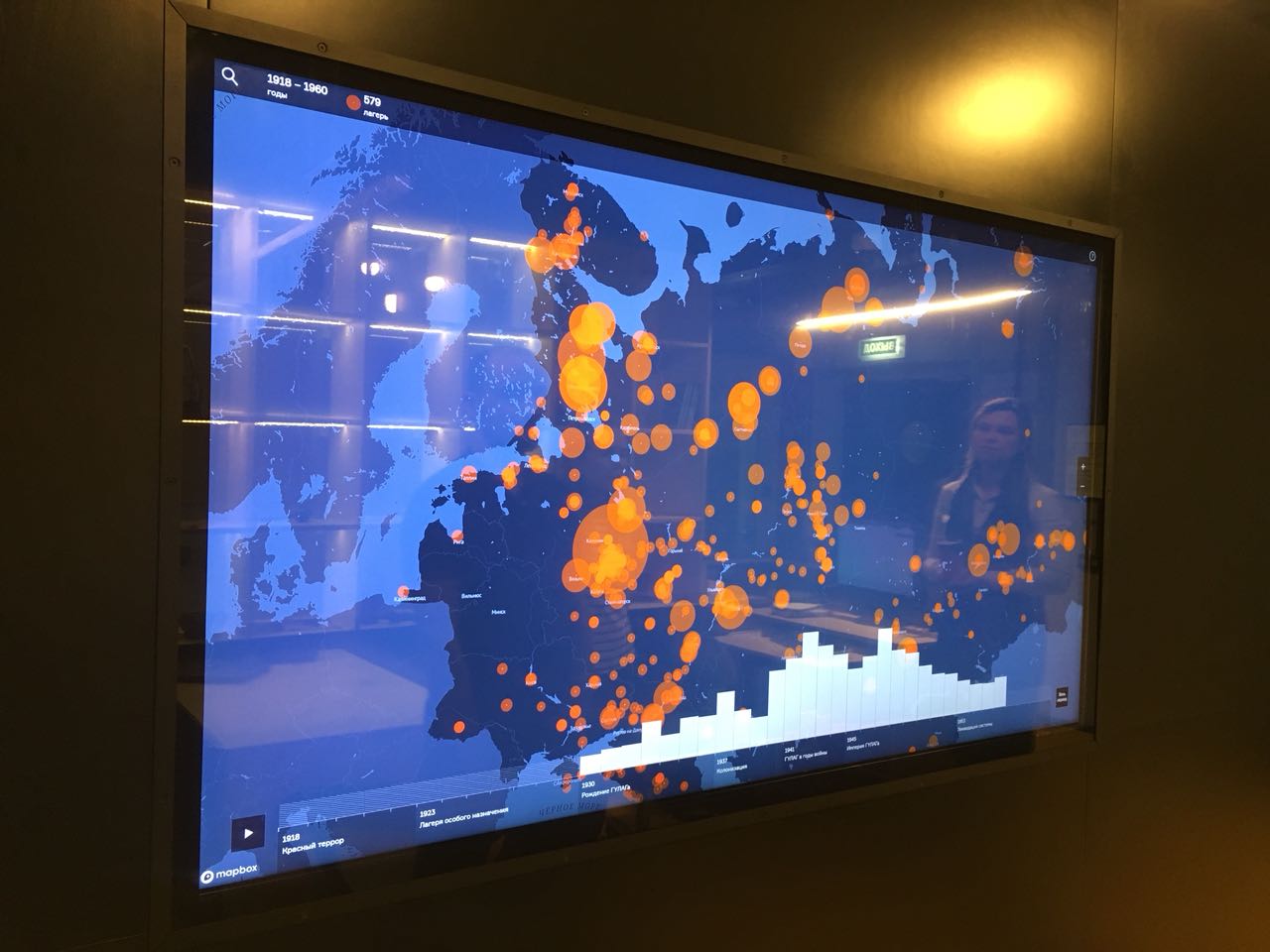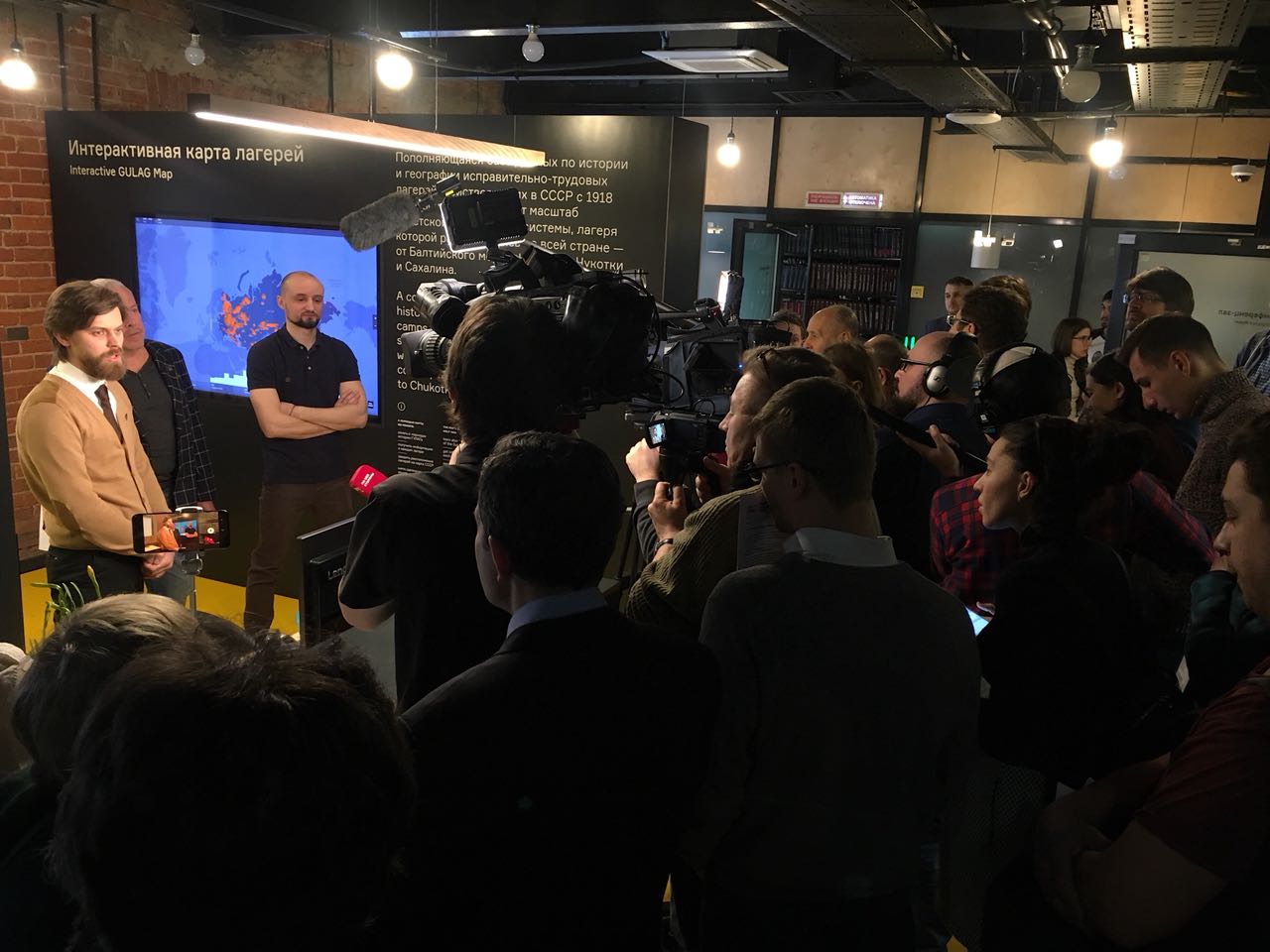CROS organizes presentation of a center for research on repressed relatives at the GULAG History Museum
On February 28, the GULAG History Museum launched the Documentation Center, a special section of the museum where all visitors can read archive documents and related literature, see items of the time, as well as learn about the sources of information about the missing victims of political repressions. The opening ceremony was held with the communications support of the CROS Company.
Roman Romanov, Director of the GULAG History Museum and the head of the Memory Fund, spoke with the guests about the functions, special features and capabilities of the new Documentation Center. Andrey Makarevich, a popular rock musician, shared his personal experience of restoring the family history and finding his relatives with the help of the Documentation Center. A copy of the investigation file on the grandfather of Makarevich was handed over to the musician during the event. The Interactive Map of GULAG was opened for the public at the Documentation Center. It is a simple and handy tool that allows working with the complex set of data and providing comprehensive overview of the scale and geography of the system of repression camps. The map also traces the history of separate camps, their evolution and tells about life inside the camps.
The Interactive Map of GULAG was opened for the public at the Documentation Center. It is a simple and handy tool that allows working with the complex set of data and providing comprehensive overview of the scale and geography of the system of repression camps. The map also traces the history of separate camps, their evolution and tells about life inside the camps.
The Center will hold regular seminars on the work with archive documents, information research and related issues. All visitors will have free access to the electronic catalogue of the Museum’s library that includes a large collection of books on the history of political repressions. Moreover, the Center plans to develop cooperation with other museums, archives and foundations to extend the amount of information publicly available and covering the history of GULAG. Admission to the Center will be free of charge during the working hours of the GULAG History Museum


